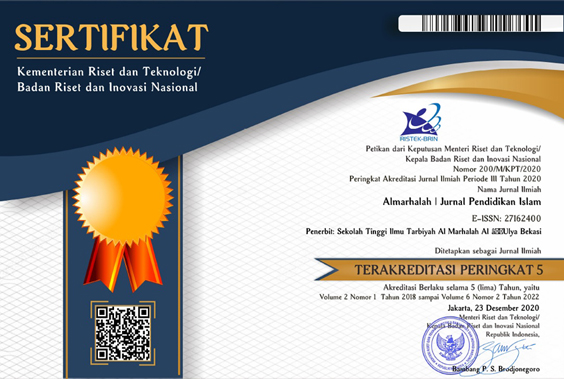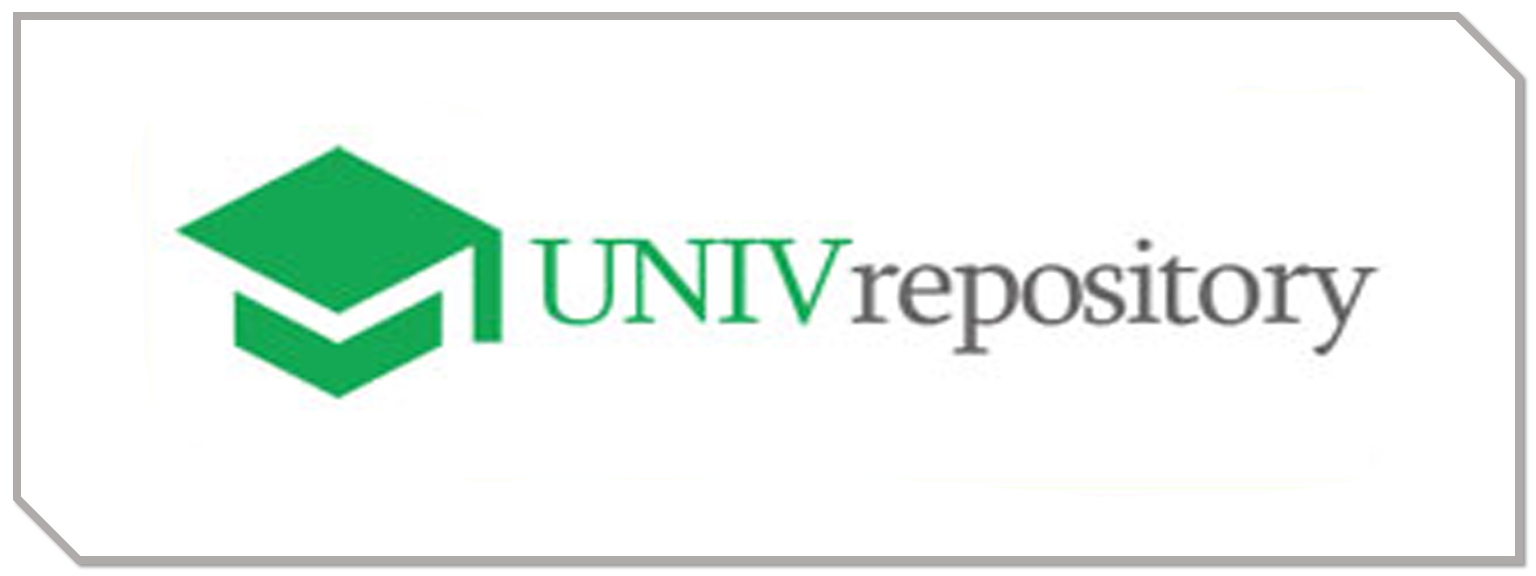MENJAGA AKSES PENDIDIKAN YANG ADIL: TANTANGAN DAN SOLUSI DALAM PEMBIAYAAN PENDIDIKAN DI INDONESIA
DOI:
https://doi.org/10.38153/almarhalah.v7i2.98Keywords:
fair education financing (pro fund), ength of years of education (pro education), welfare driving forceAbstract
Education is a basic right for every individual to develop his potential as a cultured and democratic human being. However, the higher cost of education makes access to education more difficult for people in the middle and lower economic classes. Therefore, education financing is very important in providing a fair opportunity for every individual to get a quality education.
The purpose of this research is to find out the Education Funding Inclusion Policy that is equitable with the length of years of education and has a relationship with people's welfare. Where is the force of attraction between the two poles. Previous research only compared the rate of additional years of education with poverty across countries.
This research method explores secondary data collected through library research which is carried out by searching relevant literature books and secondary data obtained and processed from BPS and World Bank data. And there are 27 districts/cities in Indonesia that were surveyed.
The conclusion of this paper is that the Education Funding Inclusion Policy will encourage economic growth and people's welfare. Because every economic growth will create additional jobs. Referring to the concept of Newton's Law of Attraction where there is a strong attraction between fair education funding (pro-fund), with the addition of years of education (pro-education), then between two periods there will be an attractive force of attraction between one object and another and if the distance the closer it is, the greater the force of attraction, thus producing a driving force for people's welfare
References
Asian Development Bank. 2017. Education Sector Assessment: Indonesia. Asian Development Bank.
Al-Samarrai, S. 2013. “Local Governance and Education Performance: A Survey of the Quality of Local Education Governance in 50 Indonesian Districts.” World Bank, Jakarta, Indonesia.
Al-Samarrai, Samer; Fasih, Tazeen; Hasan, Amer; Syukriyah, Daim. 2014. Assessing the role of the school operational grant program (BOS) in improving education outcomes in Indonesia (English). Jakarta, Indonesia: World Bank Group.
Bachtiar, I. 2019. The Challenge of Education Financing in Indonesia: A Literature Review. Journal of Education and Human Development, 8(2), 123-130.
BAPPENAS. 2019. Indonesia SDGs Progress Report 2019. Badan Perencanaan Pembangunan Nasional.
Bruns, B., D. Filmer, and H. A. Patrinos. 2011. Making Schools Work: New Evidence on Accountability Reforms. Washington, DC: World Bank.
Chang, M. C., Shaeffer, S., Al-Samarrai, S., Ragatz, A. 2014. Teacher Reform in Indonesia: The Role of Politics and Evidence in Policy Making. World Bank. Washington, DC.
de Ree, J., K. Muralidharan, M. Pradhan, and H. Rogers. 2017. “Double for Nothing? Experimental Evidence on an Unconditional Teacher Salary Increase in Indonesia.” Policy Research Working Paper 8264, World Bank, Washington, DC.
Gaduh, A., Pradhan, M., Priebe, J., and Susanti, D. 2020. “Scores, Camera, Action? Incentivizing Teachers in Remote Areas.” RISE Working Paper Series. 20/035. https://doi.org/10.35489/ BSG-RISE-WP_2020/035.
Hanushek. 2003. The failure of input-based policies. The Economic Journal. 113 (February), F64-F98 INOVASI. 2017. A case study of a teachers’ cluster working group in Moyo Hulu, Sumbawa. INOVASI.
Kesuma, R., Utz, A., Bodrogini, P., Purwana, R. 2018. Efficient Deployment of Teacher: A Policy Note. World Bank.
Lewis, B. and Smoke, P. 2017. Intergovernmental fiscal transfers and local incentives and responses: The case of Indonesia. Fiscal Studies, 38(1), pp.111-139.
Lewis, B. Forthcoming. Indonesia fiscal transfer chapter that has been prepared for the global study on decentralized education financing systems.
Ministry of Education and Culture. 2019. Indonesia Education Statistics 2018/2019. Ministry of Education and Culture.
Nabil, N. (2020). Dinamika Guru Dalam Menghadapi Media Pembelajaran Teknologi Informasi Dan Komunikasi. Almarhalah| Jurnal Pendidikan Islam, 4(1), 51-62.
Pramono, R. 2021. Analisis Kebijakan Pembiayaan Pendidikan di Indonesia. Institut Pertanian Bogor.
Rahmawati & Asriyanti, 2016. Integrity Index of National Exam: An Effort to Gain Precise Information on Achievement of Curriculum Standards, Paper presented at IAEA.
Rosser, A., Fahmi. M. 2016. The Political Economy of Teacher Management in Decentralized Indonesia. Working Paper in Economics and Development Studies. University of Padjajaran.
Sari, V. A. and Tiwari, S. Forthcoming. The Geography of Human Capital: Insights from the Sub-national Human Capital Index in Indonesia. Jakarta: The World Bank
World Bank. 2014. Sudan – State-level Public Expenditure Review; Meeting the Challenges of Poverty Reduction and Basic Service Delivery. Synthesis Report – Summary for Policy Makers.
World Bank. Washington DC. World Bank. 2013. Spending more or spending better: Improving education financing in Indonesia. World Bank. Washington DC.
Downloads
Published
Issue
Section
License
Copyright (c) 2024 Aprilliantoni, Farhan Ali Jimale

This work is licensed under a Creative Commons Attribution-NonCommercial-ShareAlike 4.0 International License.









